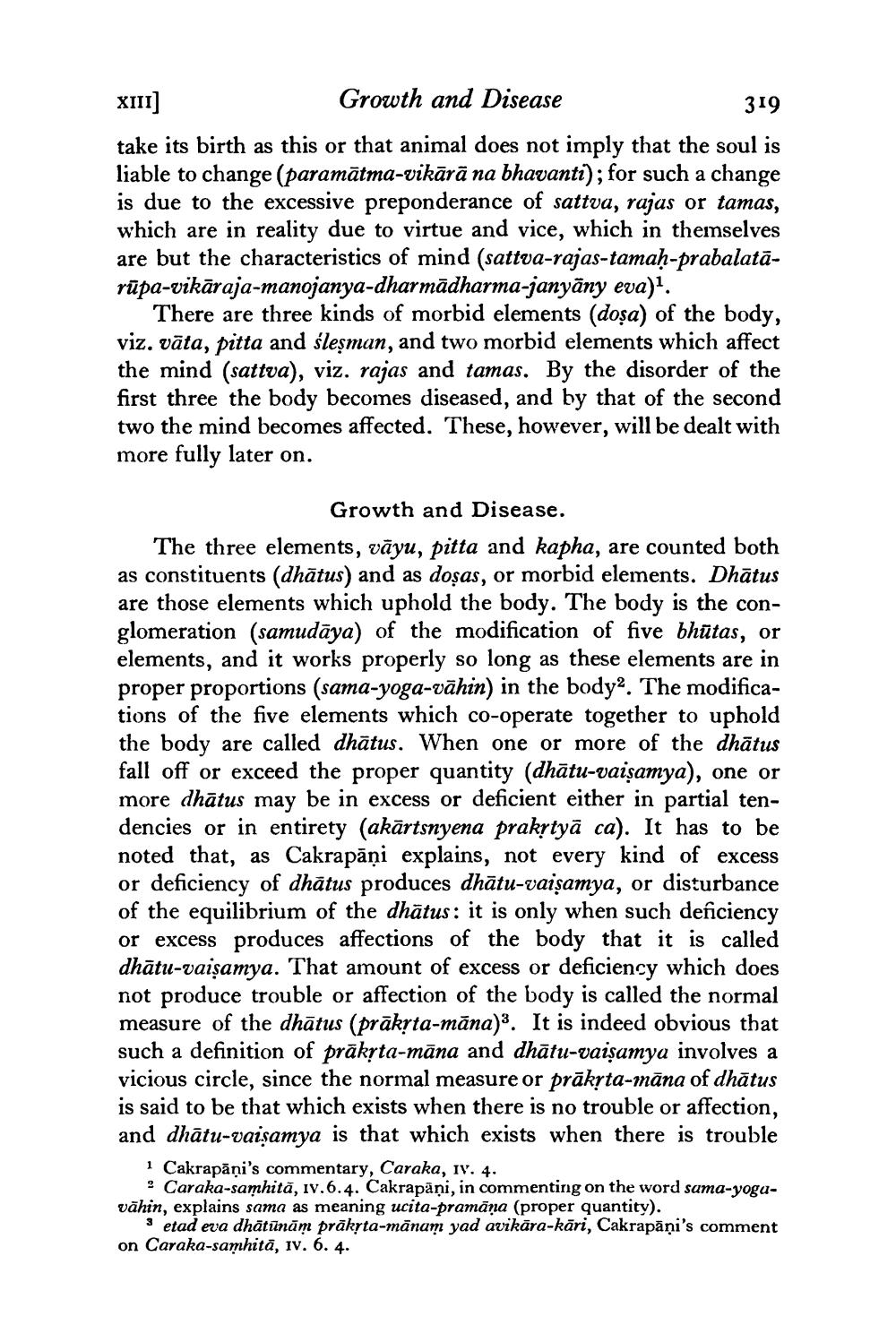________________
XIII]
Growth and Disease
319
take its birth as this or that animal does not imply that the soul is liable to change (paramātma-vikārā na bhavanti); for such a change is due to the excessive preponderance of sattva, rajas or tamas, which are in reality due to virtue and vice, which in themselves are but the characteristics of mind (sattva-rajas-tamaḥ-prabalatārūpa-vikāraja-manojanya-dharmādharma-janyāny eva).
There are three kinds of morbid elements (doșa) of the body, viz. vāta, pitta and sleşman, and two morbid elements which affect the mind (sattva), viz. rajas and tamas. By the disorder of the first three the body becomes diseased, and by that of the second two the mind becomes affected. These, however, will be dealt with more fully later on.
Growth and Disease.
The three elements, vayu, pitta and kapha, are counted both as constituents (dhātus) and as dosas, or morbid elements. Dhatus are those elements which uphold the body. The body is the conglomeration (samudaya) of the modification of five bhūtas, or elements, and it works properly so long as these elements are in proper proportions (sama-yoga-vahin) in the body2. The modifications of the five elements which co-operate together to uphold the body are called dhātus. When one or more of the dhātus fall off or exceed the proper quantity (dhātu-vaiṣamya), one or more dhātus may be in excess or deficient either in partial tendencies or in entirety (akārtsnyena prakṛtya ca). It has to be noted that, as Cakrapāņi explains, not every kind of excess or deficiency of dhātus produces dhātu-vaiṣamya, or disturbance of the equilibrium of the dhatus: it is only when such deficiency or excess produces affections of the body that it is called dhātu-vaiṣamya. That amount of excess or deficiency which does not produce trouble or affection of the body is called the normal measure of the dhātus (prākṛta-māna)3. It is indeed obvious that such a definition of prākṛta-māna and dhātu-vaiṣamya involves a vicious circle, since the normal measure or prākṛta-māna of dhātus is said to be that which exists when there is no trouble or affection, and dhātu-vaiṣamya is that which exists when there is trouble
1 Cakrapani's commentary, Caraka, IV. 4.
2 Caraka-samhita, IV.6.4. Cakrapāņi, in commenting on the word sama-yogavahin, explains sama as meaning ucita-pramāna (proper quantity).
3 etad eva dhātūnām prākṛta-mānam yad avikāra-kāri, Cakrapāņi's comment on Caraka-samhita, IV. 6. 4.




